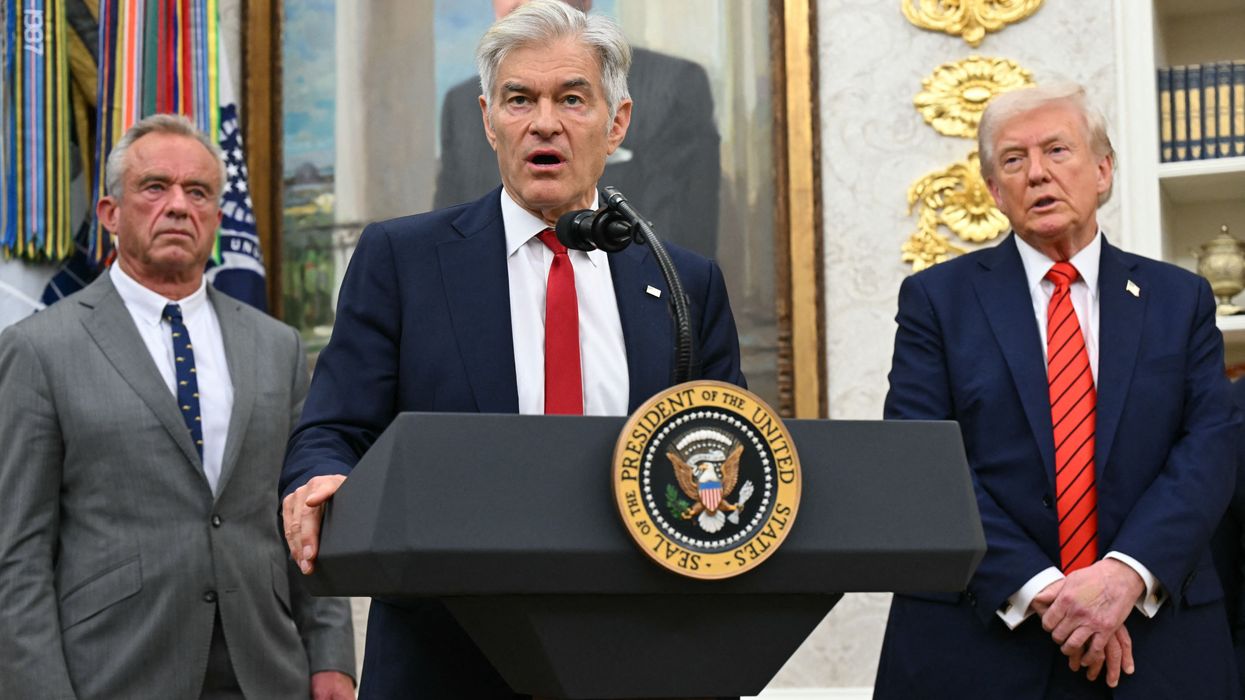The new list contains 15 drugs, including the diabetes and weight loss medication Ozempic, the breast cancer drug Ibrance, and the prostate cancer drug Xtandi. The Centers for Medicare & Medicaid Services (CMS) estimated that if the new prices—which take effect in 2027—had been in effect last year, Medicare would have saved $12 billion.
President Donald Trump campaigned on rolling back the IRA, which for the first time allowed Medicare to negotiate drug prices directly with pharmaceutical companies. Since taking office, Trump has taken steps to weaken the law, including by signing a measure that will exempt certain high-priced drugs from Medicare negotiations—a multibillion-dollar handout to Big Pharma.
But in statements on Tuesday, Trump-appointed officials hailed the newly negotiated prices. Robert F. Kennedy Jr., secretary of the Health and Human Services Department, said the negotiation results stemmed from a Trump directive to "stop at nothing to lower healthcare costs for the American people."
CMS Administrator Mehmet Oz declared that the second round of negotiations was more successful than the first, which was held under the Biden administration. Experts said that claim is specious at best.
Democratic lawmakers were quick to highlight Republican opposition to the IRA, and continued attacks on the law, in response to the newly negotiated prices.
"Democrats took on Big Pharma by giving Medicare the power to negotiate on behalf of the tens of millions of seniors that want lower drug prices while every Republican voted against it,” said Sen. Ron Wyden (D-Ore.), the top Democrat on the Senate Finance Committee. “Today’s announcement is a result of that effort by Democrats to lower health costs for older Americans."
"Medicare drug price negotiation is about to deliver tangible lower costs to seniors in Medicare, unlike Trump’s ceremonial events with Big Pharma CEOs in the Oval Office," Wyden added. "Republicans neutered future Medicare drug price negotiations by adding delays and exemptions to some of the most expensive drugs, especially cancer drugs like Keytruda."
Tuesday's announcement came less than a week after the pharmaceutical industry suffered its 16th defeat in court as it continues its legal campaign against the Medicare price negotiations. The industry is also lobbying aggressively in support of legislation that would further weaken the IRA price-negotiation provisions.
"Drug corporations already secured a $9 billion giveaway from President Trump and congressional Republicans paid for by taxpayers and cancer patients through the Big Ugly Bill, and they are trying to go even further to delay and exempt price negotiations for more blockbuster drugs," said Steve Knievel, access to medicines advocate at Public Citizen.
"Policymakers must reject these efforts to undermine Medicare drug price negotiations," Knievel added. "Instead they should build on the program’s success by providing everyone access to negotiated prices, negotiating lower prices for more drugs sooner, and ensuring drug corporations can no longer rip us off by charging the highest prices in the world for medications."




